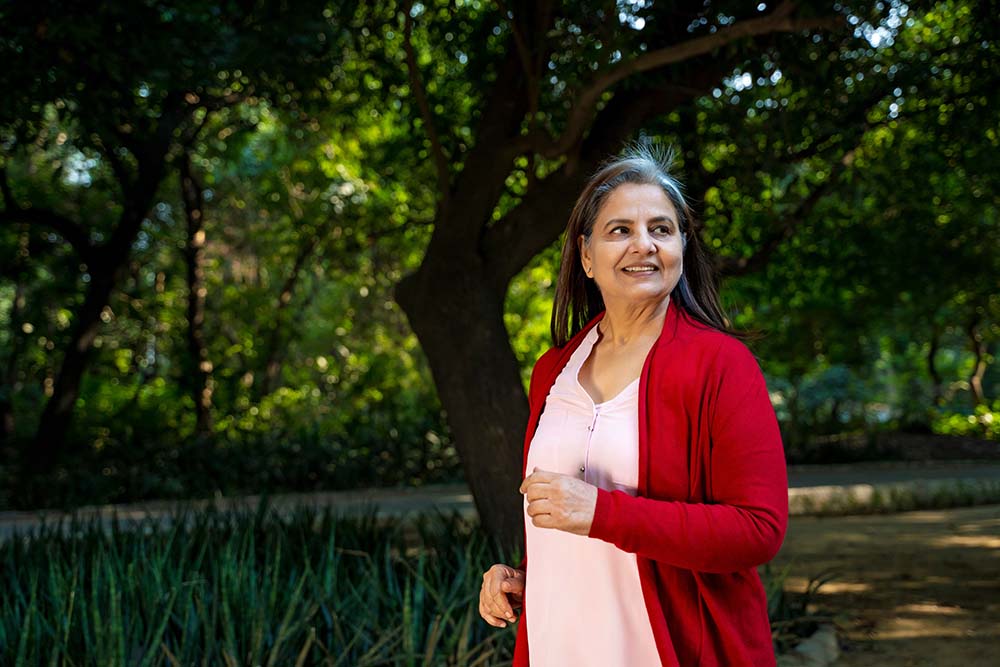“This word anti-ageing has to be struck. I am pro-ageing. I want to age with intelligence and grace and dignity and verve and energy.” Impactful words by the 63-year-old actor, Jamie Lee Curtis, who attended the Radically Reframing Ageing Summit, and emphasised the need to embrace growing old as a positive and natural experience.
This isn’t the first time the actor has spoken out about unrealistic ageing standards for women. In March 2022, she had put up a no-holds-barred photograph of herself on Instagram – sans makeup, filters, hair colour or body concealers, pot-bellied (and proud of it!) in a snug yellow T-shirt. Part of her caption stated, “In the world, there is an industry—a billion-dollar, trillion-dollar industry—about hiding things. Concealers. Body shapers. Fillers. Procedures. Clothing. Hair accessories. Hair products. Everything to conceal the reality of who we are. And my instruction to everybody was: I want there to be no concealing of anything. I’ve been sucking my stomach in since I was 11, when you start being conscious of boys and bodies, and the jeans are super tight. I very specifically decided to relinquish and release every muscle I had that I used to clench to hide the reality. That was my goal. I have never felt more free, creatively and physically.”
The size of the global anti-ageing market reached US$67.2 billion in 2022 and is projected to reach US$93 billion by 2027. Of this, women account for a staggering 80 per cent of all sales, according to a report by market research firm, Future Market Insights.
“Women are often made to believe that their value and worth lie in their youthfulness, in how they’re able to slow down the biological clock -- and not just with regards to baby making,” says yoga teacher and life coach, Radhya Shekhar. “The same traits that are desirable in men, such as salt-and-pepper hair, lines around the eyes, and so on, are considered a strict no-no for women. It’s also sad to see so many powerful women in the public eye catering to this stereotype. As a result, women are told that they need to invest considerable time, energy, and money in ensuring they look and stay young; be it night creams that come with the promise of eternal youth, or more invasive procedures like Botox or body sculpting.
“Instead of focusing on physical health, mental wellness, and what makes us happy, we are told to chase superficial things that are essentially meant to please others when they look at us. We need to celebrate older women for their life experiences, accomplishments, and how they enrich society and the community around them.”

Over the years, several global names in showbiz have tried to keep the ageing process real. Andie McDowell, Sharon Stone, Diane Keaton, and Kate Winslet are classic examples of powerful women who aren’t afraid to show the world what they really look like with each passing decade. In India, this movement is yet to kick off with most female celebrities. There are exceptions, of course.
Waheeda Rahman was a pioneer and trendsetter when she decided to drop the tedious process of colouring her locks and faced the camera with silver hair, unafraid of judgment. She confessed later in an interview that she greyed early on and found it tiring and tedious to keep dyeing her hair to cover it up. It hasn’t taken away from her persona in any way; she is still considered one of Indian cinema’s most timeless beauties. Since then, a few others like Nafisa Ali have followed suit. Actor Soha Ali Khan shared a social media post a few years ago, without makeup or filters. She was trolled brutally for simply daring to look her age while on holiday with her child! Why is ageing considered ‘bad’?
Psychologist Manjula MK says, “We often seek validation from others, and women are told at an early age that a lot of that validation lies in our looks. Ageing is considered unattractive – especially if you’re looking for love or marriage. Brands have smartly changed their tone over time. They use words like ‘firm skin’ and so on – but the message is essentially the same. It’s also interesting to note that the fear of ageing (and measures to stunt it) is being seen among progressively younger women. In fact, it isn’t women in their 50s and 60s who come to me with these fears – it is actually those in their late 20s and 30s, because they’re now sold on the idea of prevention as well.
“Also, phrases like ‘ageing gracefully’ and ‘fifty is the new forty’ are quite ridiculous and are actually doing all of us a disservice. Because then you’re told that there are only a few ways in which women age gracefully – by being beautiful or looking younger than we actually are. That’s as far away from age positivity as you can get. In fact, women are also judged for not ‘behaving’ their age. Boys will be boys, but a woman in her 40s partying and letting her hair down with friends is somehow taboo.”
She adds, “We shouldn’t have to use the word ‘anti’ before ‘ageing’. Why are we trying to get rid of it? Everlasting youth cannot be sold to us in a bottle or purchased at a beauty clinic. Instead, you should move more, laugh more, hydrate more, and focus on actual health and happiness. Grow a thick skin and stop listening to people tell you what you should look like.”
Sagging breasts, cellulite-ridden legs, laugh lines, and white hair -- ageing is so much more than all of this. Ageing is wisdom. The sign of a life well lived. An essential part of the circle of life. To put it simply, ageing is just fine. Ageism, on the other hand, is not.